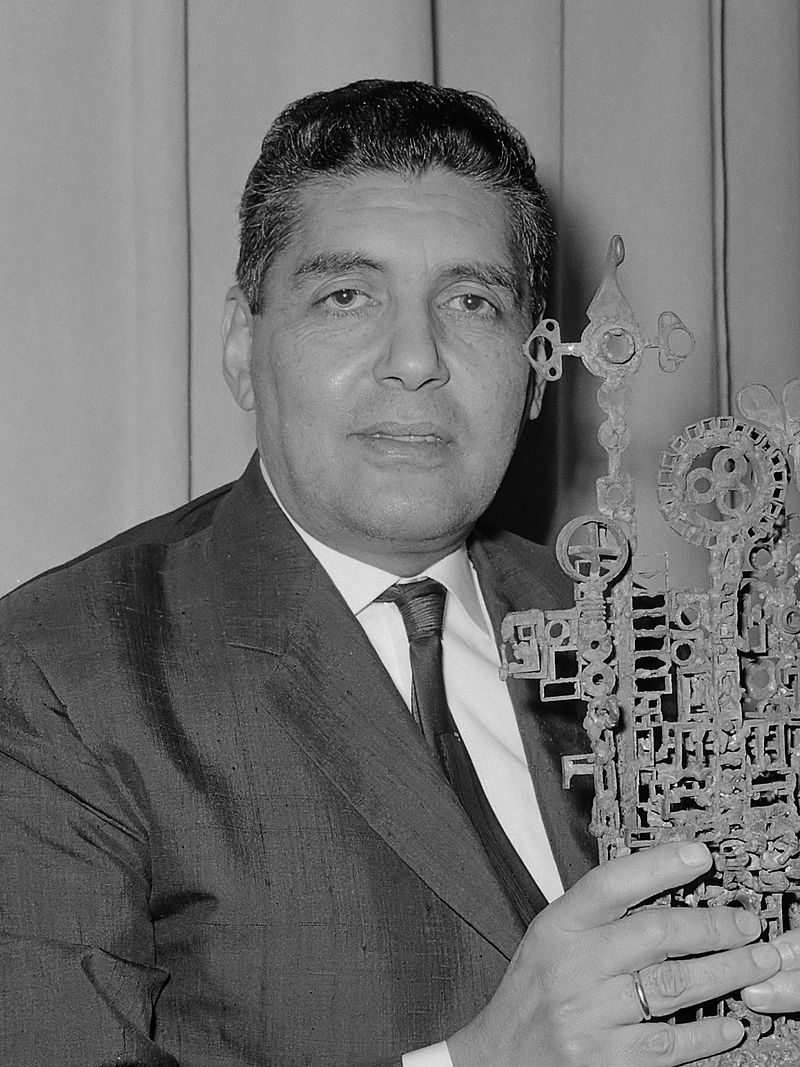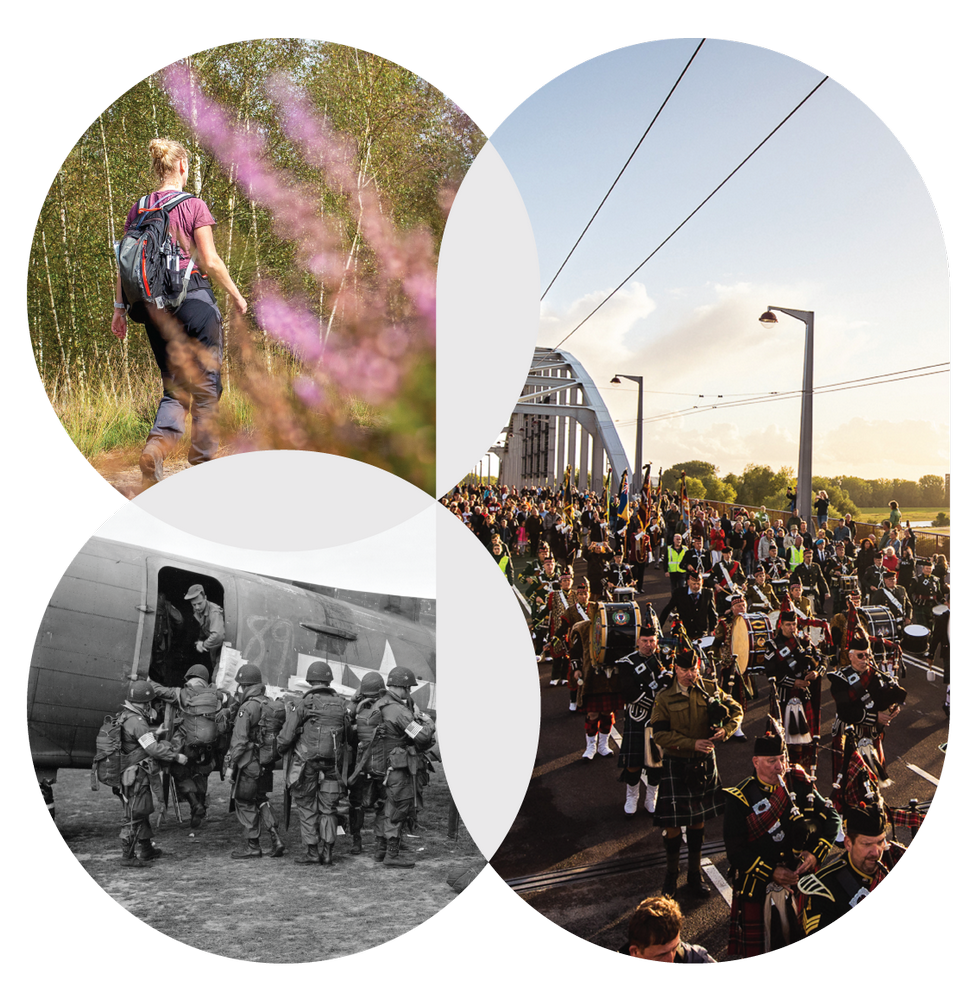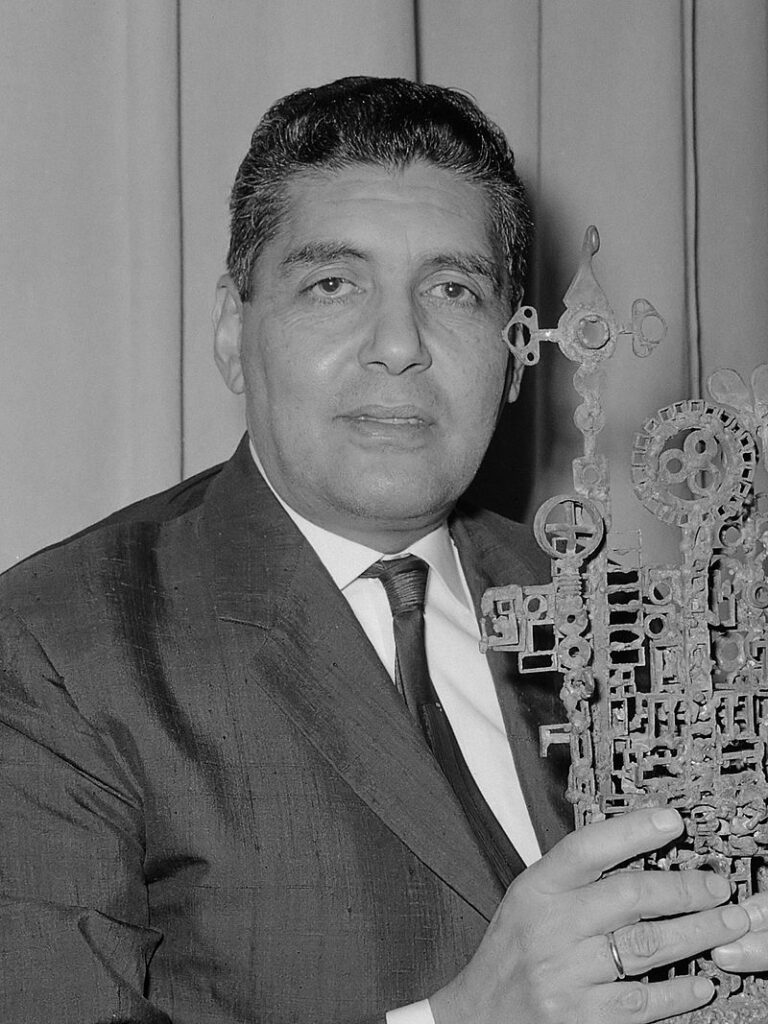
George Willem Fred Edgar was born in 1915 in Amsterdam. He is nicknamed 'Boy'. His father is a merchant of Armenian descent, who mainly trades in goods from the Dutch East Indies. Boy travels with his father to the Dutch colony several times. In his youth, Boy's family is rich, but during the economic crisis they lose everything and shortly afterwards his father dies. As a student, Boy learns to play jazz on the piano and trumpet. He is so good that he can pay for his medical studies by performing at night. In 1936 he became a trumpet player with the famous Hague jazz ensemble 'The Moochers' and three years later he took charge of this orchestra.
Only just before the end of the war did Boy and his wife have to go into hiding themselves
During the occupation, jazz is banned and Boy Edgar can no longer perform. Together with his Jewish wife he becomes active in the resistance. The couple helps find hiding places for Jewish children. More and more raids are taking place in Amsterdam, so Boy and his wife move to the small village of Heumen, where he becomes an assistant general practitioner. He regularly travels from Heumen to Amsterdam and on several occasions smuggled Jewish children from Amsterdam to the countryside, where they could go into hiding. Only just before the end of the war did Boy and his wife have to go into hiding themselves. They were probably in an attic in the Heumen at the time, possibly at the doctor's office.


After the war, Boy Edgar was briefly imprisoned because he refused to serve as a conscript to fight against Indonesian independence. In the meantime, jazz is becoming extremely popular. When he is free again, Boy will work as a GGD doctor, teach at the university, and play in the evenings in the best jazz clubs in the Netherlands. When it turns out that his wife has multiple sclerosis, he promotes the disease in the hope of saving her. His work is groundbreaking, but he can no longer help his wife. She dies in 1958. Boy struggles with the loss and finds meaning in jazz. His Boy's Big Band brings world stars from jazz to the Netherlands. He now works as a medical scientist. After working in the United States for a few years, he spent the last years of his career as a general practitioner in Duivendrecht and the Bijlmermeer, and as a confidential counselor at the first abortion clinic in the Netherlands. He died in 1979. A year later, the most important jazz prize in the Netherlands was named after him: the Boy Edgar Prize.
After the war, Boy hardly ever spoke about his resistance work. When he posthumously received the Yad Vashem award for his help to Jews in 2018, it came as a surprise to many who knew him.







